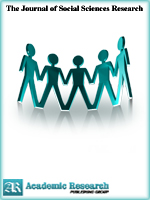The Journal of Social Sciences Research
Online ISSN: 2411-9458
Print ISSN: 2413-6670
Print ISSN: 2413-6670
Quarterly Published (4 Issues Per Year)

Archives
Volume 3 Number 4 April 2017
Examining the Impact of Quality of Life on Satisfaction and Intent to Return for Marathon Runners
Authors: Chun-Chu Yeh ; Cheng-Shih Lin ; Chin-Huang Huang
Pages: 37-40
Abstract
Marathon is one of the popular physical activities in Taiwan. The Physical activities also play an important role in promoting quality of life (QoL). The distance running enhances participants’ life satisfaction and provides positive experiences in physical activity. This study aims to measure the perception of QoL and to find the effect on satisfaction and intent to return for Marathon runners. Exploratory factor analysis was carried out to extract four major factorial dimensions of QoL, including multiple functions, spiritual, physical and cognitive factors. The main factors of QoL were introduced into the regression function on satisfaction and return intention. The results shown that the QoL factors including multiple functions, spiritual, physical and cognitive factors, and had positive and significant impacts on satisfaction for participants. The multiple functions and physical factors were also significantly positively correlated to the intent of return for runners.
Index of Economic Freedom, Religion and Female Literacy in Sub-Saharan Africa
Authors: Amon O. Okpala ; Comfort O. Okpala
Pages: 33-36
Abstract
Because female literacy contributes to the economic condition in sub-Saharan Africa, it is important to examine the role of index of economic freedom and religion on female literacy. By index of economic freedom, we mean an index that measures the extent to which individuals are free to engage in voluntary transactions. Using cross-sectional data of 33 sub-Saharan African countries, this paper examines: (a) the impact of index of economic freedom on female literacy, and (b) the influence of religion on female literacy. Using ordinary least squares (OLS) regression analysis, the study found that the index of economic freedom was positively related to female literacy at a 10 percent significant level. Religion was found to be negatively related to female literacy at a 1 percent level of significance.



